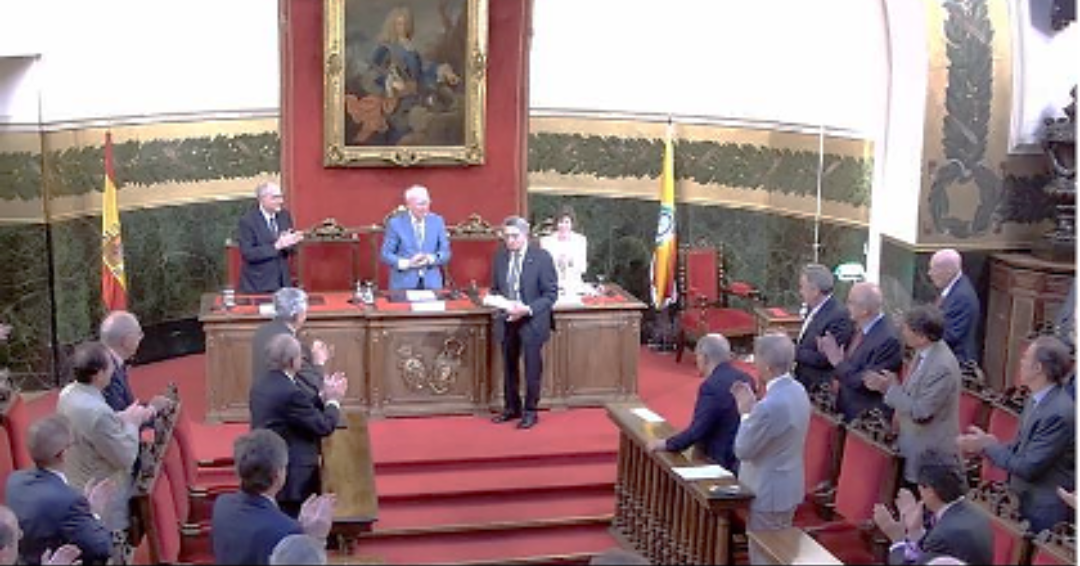
On July 4, 2023, Claudio Cuello, OC, MD, DSc, Charles E. Frosst Merck Chair and past Chair of the Department of Pharmacology and Therapeutics at McGill University’s Faculty of Medicine and Health Sciences, was formally inducted as a Foreign Member of the Spanish Royal Academy of Medicine in recognition of his lifelong contributions to the field of neuroscience and neuropharmacology.
The Royal Academy cited Prof. Cuello’s pioneering work on dendritic release of neurotransmitters and on the role of neuroactive peptides such as Substance P. His fruitful incursion into the field of immunology resulted in the generation of the first monoclonal antibody ever applied in the neurosciences (anti-Substance P) and the invention of bi-specific monoclonal antibodies, a strategy currently under exploration in cancer therapy.
Prof. Cuello’s most recent work looks at degenerative and regenerative processes in the central nervous system with particular emphasis on brain aging and Alzheimer’s disease-related studies. His lab conducts multidisciplinary research projects with a particular interest in Alzheimer’s disease therapeutics.
Prof. Cuello’s links to Spain were noted at the ceremony of the Royal Academy, including his contributions to the Spanish Research Council as a Member of an International Panel overseeing the modernization of the Cajal Institute. The result was its new current building, updating the Institute’s equipment and recruiting the best and brightest neuroscientists from Spain and abroad. It was also revealed that Prof. Cuello’s family on his mother’s side has historical links with Spain which can be traced to 1350. This includes an eminent ancestor called Quiroz who was renamed Cienfuegos (“100 fires”) by Pedro I de Castilla for leading 100 knights with torches in battle. Prof. Cuello’s scientific connections with Spain were also highlighted: he was trained in electron microscopy by distinguished Argentinian neuroscientist Amanda Pellegrino de Iraldi, who was a disciple of Pio Del Rio Hortega, the Spanish discoverer of microglia who fled to Argentina (Prof. Cuello’s homeland) during the Spanish Civil War. Rio Hortega had been the most noted disciple of Santiago Ramon y Cajal, who is known as the Father of modern Neuroscience and for whom the Cajal Institute is named.
Prof. Cuello, who is also an Associate Member in the Departments of Anatomy and Cell Biology and Neurology and Neurosurgery, a past Adjunct Professor of the Scripps Institute in La Jolla, California,) past Visiting Professor in Molecular Biology & Medicine, NUS, Singapore and current Visiting Professor at Oxford University, was bestowed the Academy’s medal at the ceremony and delivered to the Academy members a lecture titled “Is nerve growth factor of significance in Alzheimer’s pathology?” (¿Es el Factor de Crecimiento Nervioso de significancia en la patología de Alzheimer’s?)
Congratulations Prof. Cuello!
Related:
Spain’s Royal Academy of Medicine (La Real Academia Nacional de Medicina)
